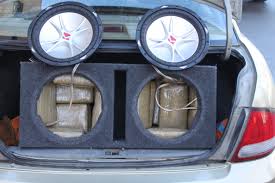When can police search your car without a warrant?
Generally, a police officer may search your car without a warrant if he suspects that:
- the vehicle contains stolen goods,
- the vehicle is being, or was, or may have been, used in a criminal offence,
- the vehicle contains anything used or intended to be used in a criminal offence,
- the vehicle contains, or a person in the vehicle has possession of an illegal drug.
The police officer must have a “reasonable suspicion”.
What is “reasonable suspicion” to allow a search?
A ‘reasonable suspicion’ has to involve more than just a ‘mere possibility’ in the mind of a police officer. For police to exercise their powers there must be actual grounds for police to base their suspicion. A police officer being suspicious is not grounds in itself. In other words it is what the Police officer actually “believed” that is important when assessing reasonable suspicion. However, if the grounds upon which the police formed that suspicion are baseless, this can raise questions about the legality of the search.
An example:
A police officer is driving behind a vehicle that is swerving from side to side, so he decides to pull the vehicle over to investigate. He approaches the window of the driver’s side of the vehicle and speaks to the driver. He notices that the driver is intoxicated and smells of alcohol. The driver is known to him as a career criminal, with a long record of break and enter offences. He tests him for alcohol and it comes up as a positive reading. He, in his own mind, forms a strong suspicion that there may be housebreaking implements in the driver’s car, as he knows him all too well. He orders a search of the vehicle.
Is the search legal?
The short answer is No.
Whilst the police officer may have formed a “reasonable suspicion” that the vehicle may contain housebreaking implements, the reasoning behind his belief could not be considered as proper grounds to form that suspicion. Perhaps there was a possibility that there were housebreaking implements in the car, due to the driver’s record, however this would not amount to reasonable grounds, just based on an assumption made by the police officer. The fact that the driver has likely committed an offence, that is drink driving, is irrelevant to whether the police officer should be allowed to conduct a search of the vehicle.
What happens if the court deems the search illegal?
Generally any evidence obtained as a result of the search is inadmissible in court and this could lead to the charges being withdrawn or dismissed.
If you have been charged with and offence resulting from your car being searched, call one of our experienced solicitors at LY Lawyers on 1300 595 299.







